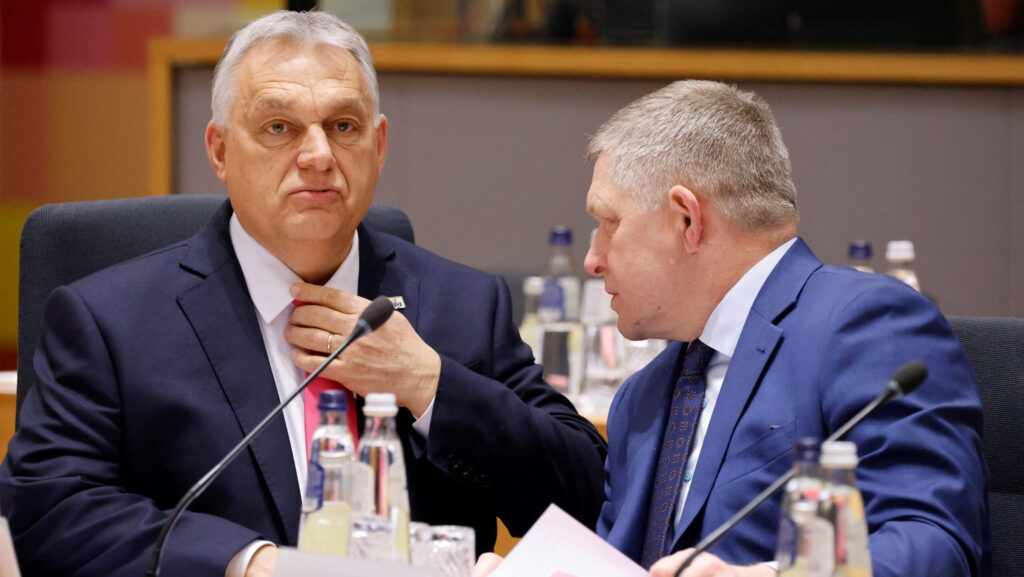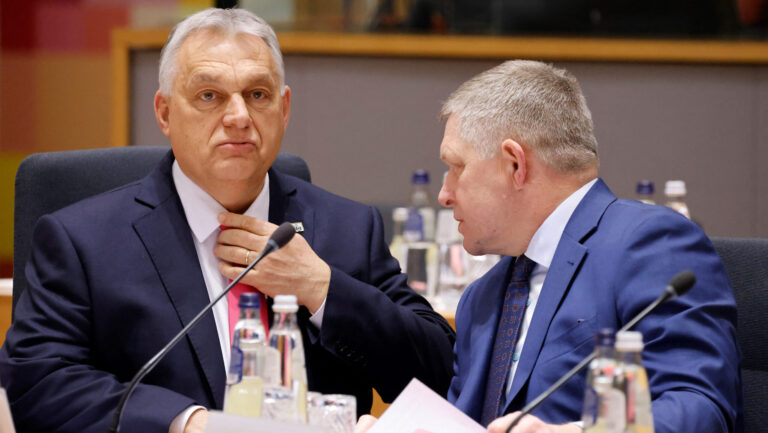Hungarian Minister of Foreign Affairs and Trade Péter Szijjártó has accused the European Union and Poland of aligning with Ukraine in an intensifying smear campaign against Hungary. The minister made the remarks following the informal NATO foreign ministers’ meeting held in Antalya, Türkiye, on Thursday.
According to Szijjártó, Polish Foreign Minister Radosław Sikorski ‘parroted all the accusations’ originating from Ukrainian disinformation sources, which he claimed were aimed at obstructing Hungary’s ongoing public vote on Kyiv’s fast-track EU accession. ‘Of course, I firmly rejected the accusations of the Polish Foreign Minister and made it clear that this is a smear campaign against Hungary,’ Szijjártó stated.
Zoltan Kovacs on X (formerly Twitter): “❗️@FM_Szijjarto: Brussels and Warsaw are reinforcing Ukraine’s anti-Hungarian smear campaign to undermine the Hungarian people’s right to vote on Ukraine’s EU membership.🗣️ FM Szijjártó rejected @sikorskiradek’s accusations and made it clear that this is a smear campaign… pic.twitter.com/wH5IzL0G9W / X”
❗️@FM_Szijjarto: Brussels and Warsaw are reinforcing Ukraine’s anti-Hungarian smear campaign to undermine the Hungarian people’s right to vote on Ukraine’s EU membership.🗣️ FM Szijjártó rejected @sikorskiradek’s accusations and made it clear that this is a smear campaign… pic.twitter.com/wH5IzL0G9W
He continued by stating that anti-Hungarian propaganda was continually on the rise in Ukraine, and that recent developments indicate Brussels and Warsaw are now intent on intensifying this narrative.
Reiterating Hungary’s long-standing position within NATO, Szijjártó declared that the alliance is not an offensive alliance. ‘When we talk about defence, we are talking about our own defence, not the defence of some external actor,’ he said, referring to Ukraine. ‘The defence of Ukraine is not the defence of the alliance, not the community, not NATO. Ukraine is currently the threat,’ he warned.
Aftermath of the Spy Scandal
Tensions between Budapest and Kyiv escalated significantly after Ukraine’s Security Service (SBU) announced on Friday that it had uncovered a spy network in western Ukraine allegedly operated by Hungarian military intelligence. According to the SBU, two Ukrainian nationals were arrested in Transcarpathia for allegedly working to gauge local sentiment towards the potential deployment of a Hungarian ‘peacekeeping contingent’ in the region, among other intelligence-gathering objectives.
In response, Hungary expelled two Ukrainian spies operating under diplomatic cover. Ukraine retaliated in kind by expelling two Hungarian diplomats.
Before the SBU’s announcement on Friday, Hungarian opposition leader Péter Magyar released what he described as a ‘government-toppling’ audio recording on Facebook, in which Defence Minister Kristóf Szalay-Bobrovniczky is heard discussing Hungary’s shift toward operational military readiness in response to the war in Ukraine. Although Magyar framed the leak as explosive, similar statements had been made publicly since 2023. Nonetheless, the timing of the release prompted speculation of a coordinated attempt to destabilize the government ahead of the Ukrainian intelligence operation.
Further complicating the picture, media reports have emerged implicating one of Magyar’s close allies, former Chief of the Hungarian Defence Forces Romulusz Ruszin-Szendi. Ruszin-Szendi, who served as Chief from 2021 to 2023, allegedly presented views during NATO meetings that diverged significantly from Hungary’s official position. A Defence Ministry investigation found that, in at least four meetings since the outbreak of the war, he promoted a more pro-Ukrainian stance, failing to communicate Hungary’s opposition to lethal aid transfers through its territory or the government’s call for an immediate ceasefire and negotiated peace.
The investigation further concluded that Ruszin-Szendi’s official reports misrepresented his actual statements at NATO meetings, giving the false impression that he had followed government instructions. Particularly controversial was the finding that he ended several speeches with the phrase ‘Slava Ukraini’ (‘Glory to Ukraine’), a gesture seen as entirely inconsistent with Hungary’s neutral stance on the war.
Countering Ukrainian Propaganda
‘The Hungarian government sees this alignment as a deeply troubling development. It is unprecedented in the country’s recent history for a domestic political actor to collaborate with the intelligence services of a neighbouring state. This partnership, aimed at discrediting Hungary’s national security institutions, constitutes an attack on sovereignty from within,’ wrote State Secretary for International Relations and Communication Zoltán Kovács in a post on his blog About Hungary.
In response to these developments, the governing Fidesz party has introduced a new legislative proposal aimed at protecting national sovereignty and countering covert foreign influence in domestic affairs. The draft law, titled ‘On the Transparency of Public Life,’ was submitted to Parliament on 13 May and seeks to regulate organizations that receive foreign funding while engaging in political discourse.
According to Kovács, foreign-financed entities—especially NGOs and media outlets—have played a central role in shaping public opinion on key issues. ‘These same organizations are now the primary voices of Ukrainian propaganda aimed at discrediting Hungary. The transparency law is the best tool to act effectively against Ukrainian propaganda,’ he wrote.
Related articles:







